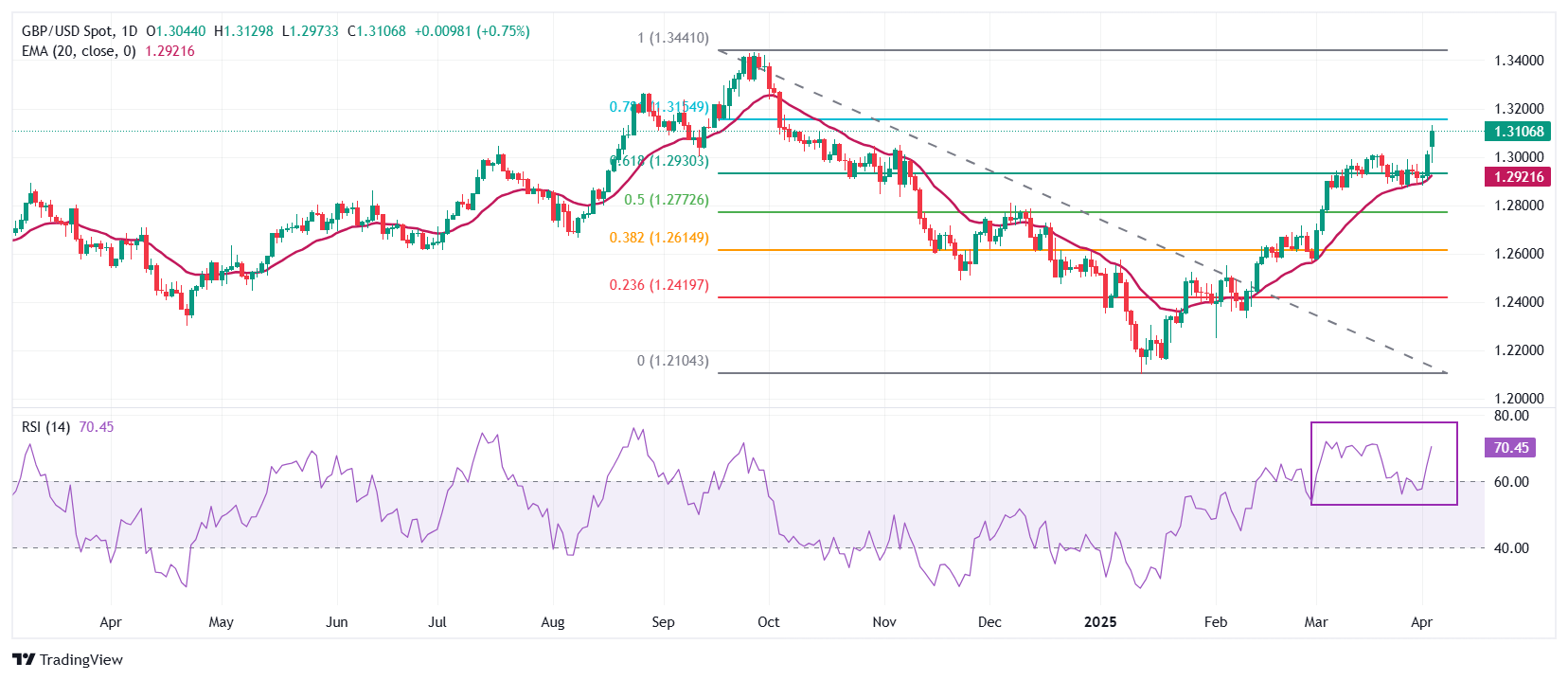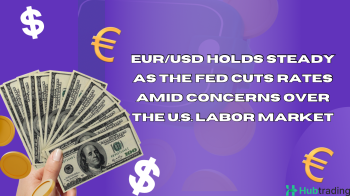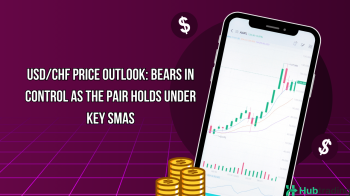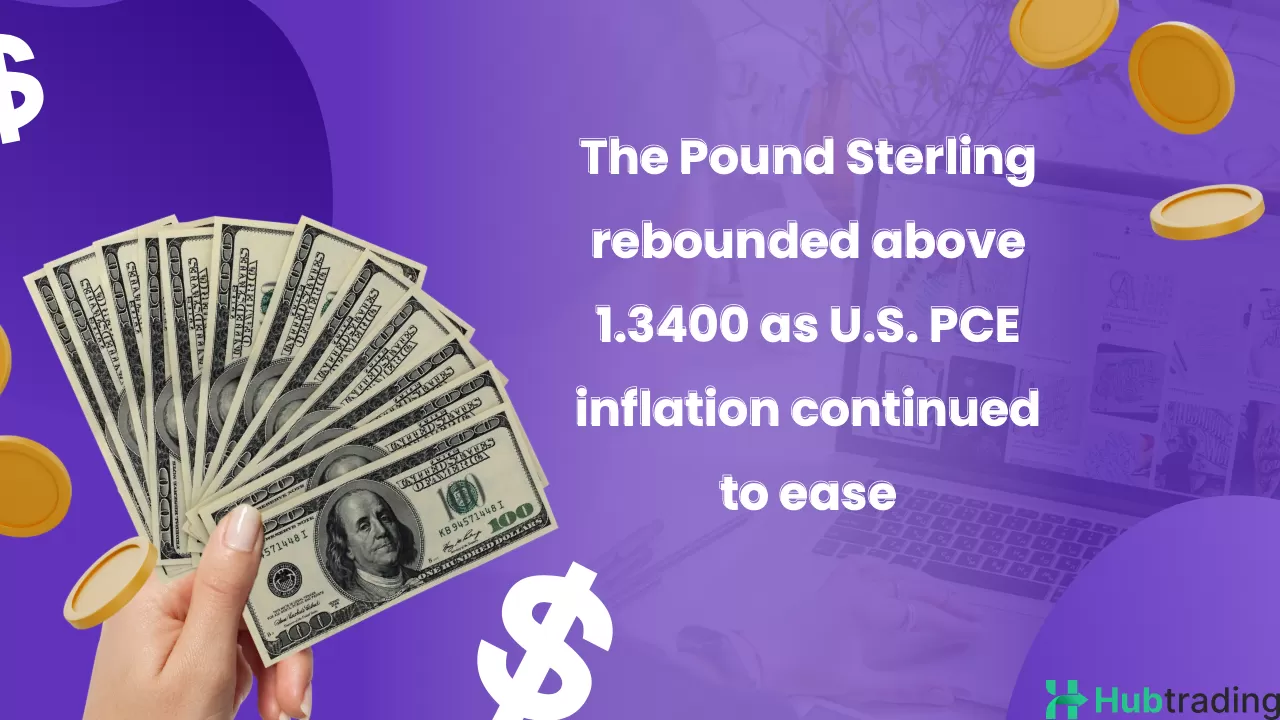-
Pound Sterling rises above 1.3100 against the US Dollar as Trump's higher-than-expected tariffs heighten US recession concerns.
-
President Trump applies a 10% tariff on the UK, the lowest among all trading partners.
-
The UK is unlikely to respond with retaliatory tariffs.
The Pound Sterling (GBP) rises above 1.3100 against the US Dollar (USD) during Thursday's European session, reaching its highest point in nearly six months. The surge comes as the US Dollar weakens following President Donald Trump's announcement of unexpected, harsh tariffs on trading partners.
The US Dollar Index (DXY) drops to around 102.70 as a result of the tariff news, which includes a 10% baseline duty on all products entering the US, as well as additional levies on most trading partners. This announcement raises fears that the US economy could face a recession, driving speculation that the Federal Reserve may need to implement more interest rate cuts, despite concerns about inflation.
Stephen Miran, Chair of the US Council of Economic Advisers, echoed expectations that Trump's protectionist policies could cause "short-term bumps" but emphasized the long-term goal of improving the US economy's sustainability and fairness in the global market.
Looking ahead, investors will focus on the upcoming US S&P Global and ISM Services PMI data for March. The S&P Global Services PMI is expected to align with preliminary forecasts of 54.3, while the ISM Services PMI is predicted to dip to 53.0 from February’s 53.5, indicating moderate growth in the services sector.
Daily Digest Market Movers: Pound Sterling Holds Steady as S&P PMI Disappoints
- The Pound Sterling (GBP) shows mixed performance against its major peers on Thursday, but it holds a stronger outlook as US President Donald Trump imposes the lowest tariffs on the United Kingdom (UK). Trump announced a 10% tariff on Britain, the smallest levy among his trading partners.
- Although the UK's tariffs are the least severe, the overall impact on the economic outlook could still be significant. UK businesses may struggle to compete globally, especially against companies from countries with higher tariffs, which will likely see their products become less competitive in the US market and globally.
- Unlike other leaders preparing countermeasures, the UK is unlikely to retaliate. UK Prime Minister Keir Starmer has stated that engaging in a trade war with the US is not sensible but acknowledged the government's preparations for any eventuality following Trump's tariff announcement.
- Meanwhile, the revised UK S&P Global/CIPS Composite and Services PMI data for March came in weaker than preliminary estimates, with the Composite PMI falling to 51.5 and the Services PMI at 52.5.
Technical Analysis: Pound Sterling Breaks Above 1.3100

The Pound Sterling rises to near 1.3175 against the US Dollar, following a solid base around the 61.8% Fibonacci retracement level from late September to mid-January at 1.2930. The 20-day Exponential Moving Average (EMA) at 1.2922 suggests a bullish near-term outlook.
The 14-day Relative Strength Index (RSI) is now around 70.00 after pulling back to near 60.00, indicating that bullish momentum has resumed.
Looking ahead, the 61.8% Fibonacci level at 1.2930 remains a crucial support zone, while resistance lies at the September 26 high of 1.3434.





